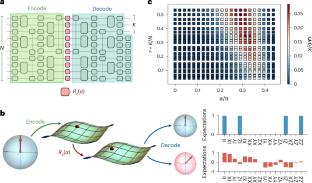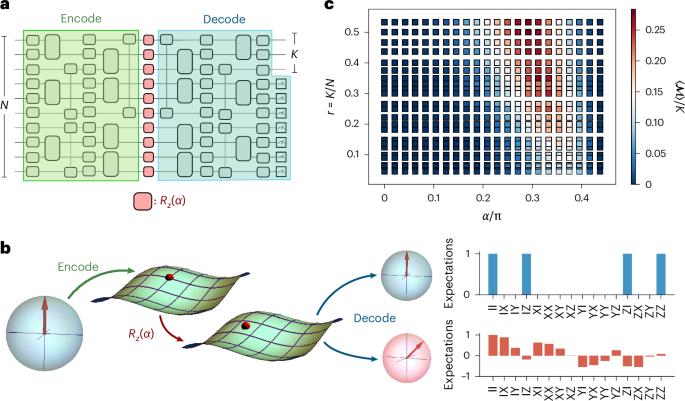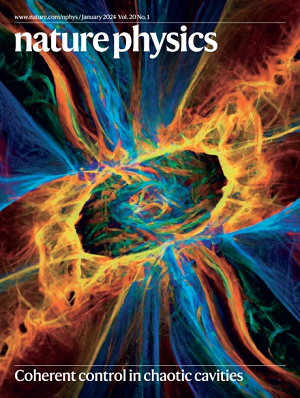魔术中的相变与随机量子电路
IF 17.6
1区 物理与天体物理
Q1 PHYSICS, MULTIDISCIPLINARY
引用次数: 0
摘要
魔力是量子态的一种特性,它能利用简单的门操作集实现通用容错量子计算。因此,了解魔力产生或破坏的机制是实现高效实用容错计算的关键一步。量子计算中的许多纠错建议都使用了所谓的稳定器代码,它利用多量子比特测量来检测逻辑量子比特状态的偏差。在这里,我们观察到,受相干误差影响的随机稳定器代码会出现神奇的相变,我们通过分析、数值和实验探究来描述这种相变。在临界误差率以下,稳定器测量会移除电路中积累的魔力,有效防止相干误差;在临界误差率以上,测量会集中魔力。更好地理解魔力资源理论中的这一行为,有助于确定量子加速的起源,并带来更高效的魔力态生成方法。本文章由计算机程序翻译,如有差异,请以英文原文为准。


Phase transition in magic with random quantum circuits
Magic is a property of quantum states that enables universal fault-tolerant quantum computing using simple sets of gate operations. Understanding the mechanisms by which magic is created or destroyed is, therefore, a crucial step towards efficient and practical fault-tolerant computation. Many proposals for error correction in quantum computing make use of so-called stabilizer codes, which use multiqubit measurements to detect deviations from logical qubit states. Here we observe that a random stabilizer code subject to coherent errors exhibits a phase transition in magic, which we characterize through analytical, numerical and experimental probes. Below a critical error rate, stabilizer measurements remove the accumulated magic in the circuit, effectively protecting against coherent errors; above the critical error rate measurements concentrate magic. A better understanding of this behaviour in the resource theory of magic could help to identify the origins of quantum speedup and lead to methods for more efficient magic state generation. Coherent noise affecting a random error correcting code is now shown to produce a transition between phases that accumulate and destroy magic.
求助全文
通过发布文献求助,成功后即可免费获取论文全文。
去求助
来源期刊

Nature Physics
物理-物理:综合
CiteScore
30.40
自引率
2.00%
发文量
349
审稿时长
4-8 weeks
期刊介绍:
Nature Physics is dedicated to publishing top-tier original research in physics with a fair and rigorous review process. It provides high visibility and access to a broad readership, maintaining high standards in copy editing and production, ensuring rapid publication, and maintaining independence from academic societies and other vested interests.
The journal presents two main research paper formats: Letters and Articles. Alongside primary research, Nature Physics serves as a central source for valuable information within the physics community through Review Articles, News & Views, Research Highlights covering crucial developments across the physics literature, Commentaries, Book Reviews, and Correspondence.
 求助内容:
求助内容: 应助结果提醒方式:
应助结果提醒方式:


